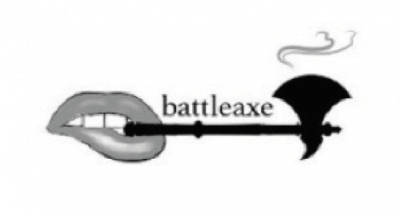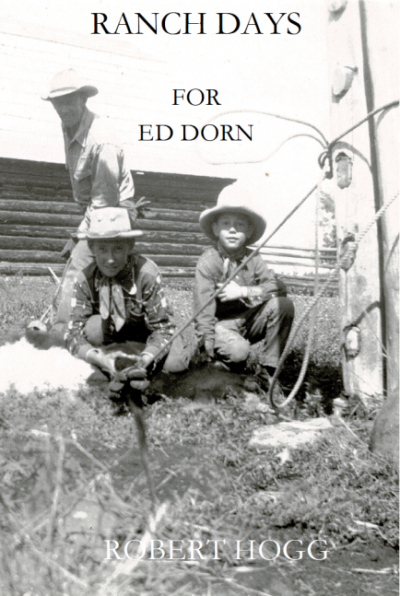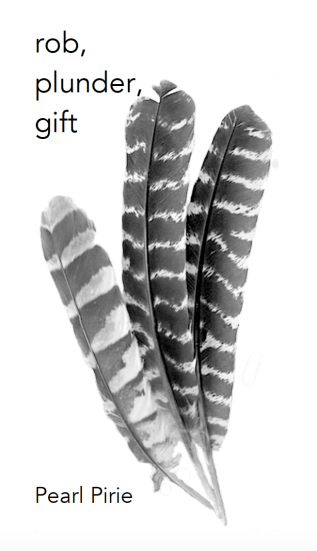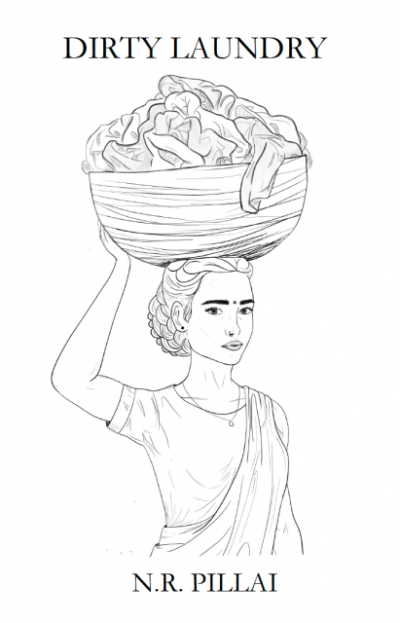
Founder
natalie hanna is a queer, disabled, lawyer of Middle-Eastern descent, working with low income populations. Her writing focuses on feminist, political and personal themes. She is the author of ten chapbooks, including three titles with above/ground press, with an eleventh chapbook “infinite redress” coming out with baseline press in the Fall of 2020. Between April 2016 and September 2018, she served as the Administrative Director of the Sawdust Reading Series, and on the board of ARC Poetry Magazine. Her poem, “light conversation” received Honourable Mention in ARC 2019 – Diana Brebner Prize.
Tell us a bit about your press. How did you start? Who are your influences, in Canada and beyond? What is your mission?
I started battleaxe press in 2016, focussing on poetry chapbooks and broadsides, with some special projects now and then. My biggest influence has been the tireless production of work by rob mclennan with above/ground press and his other projects. He gave me the first model of how to hustle to get poetry into everyone’s hands over 25 years ago. battleaxe supports emerging and established writers, from an anti-oppression position, and the press doesn’t accept work that discriminates or denigrates. I welcome work from people of all walks of life, but invite, especially, the voices of young authors and BIPOC. I think back to the lack of local BIPOC role models for me when I first got involved in small press in the 90s and want to provide a positive space to lift up the work of poets who were in my position.
What about small press publishing is particularly exciting to you right now?
I love that presses are making way for voices that have been routinely marginalized and that more presses are being run by individuals or boards that reflect the diversity of our literary communities.
I’m also really excited about collaborative works and editors who let the author’s natural voice come through. I had some very negative experiences early on with more experienced writers seeking to shape my voice into something more acceptable. I love how accessible small press is becoming as people work together, and learn from each other, since I “grew up” in an environment where a lot of emphasis was placed on being an academic or on conforming to formal and controlling literary interests in order to be taken seriously, as if there was only one path to writing. I think that the more we encourage emerging authors to work with editors that they feel they can trust to guide them fairly without over-writing their voice, the better we’re doing for our literary health.
I also really like that no one has turned their backs on small press just because we’re in the midst of a pandemic and that people are taking advantage of the opportunities they have to collaborate on alternate formats, including electronic offerings.
How does your press work to engage with your immediate literary community and community at large?
Aside from working with mostly local authors to build the Ottawa poetry community, I’ve used battleaxe press to produce two collections I’ve really enjoyed developing.
One was a chapbook collecting poems from nearly all of the authors who had performed with the Sawdust Reading Series in its final year, which felt like the best homecoming.
The other was a chapbook that invited submissions about the authors’ sexual assaults or reactions to the sexual assaults of others, in the face of the historic censure of the voices of those who live sexual assault, as a fundraiser for the Ottawa Rape Crisis Centre. That chapbook represented a tremendous generosity of spirit, and a tremendous act of bravery, by the authors. I know that some insist that poetry should not be political, but I disagree with that position. Even if a work itself is not inherently political, I think that what you do with your platform matters, whether it’s donating to support people or making space for difficult conversation, or other efforts…
Like other small press runners, I also try to take the time to answer questions for others who are interested in building their own presses. I find that people nowadays are much readier to support one another.
How have the current multiple global crises impacted your work with the press?
On a very personal level, health issues have limited and changed the way I need to run the press in 2020 during this pandemic. Otherwise, I want authors to know that there is a place where they can submit work on challenging subjects, as I don’t believe we, as a literary community, can entirely shy away from global crises and tragedies. There is something that calls to the best part of us to respond to the tremendous adversity and inequality others face.

Ranch Days - For Ed Dorn
Robert Hogg
2019 (second printing 2020)
Robert Hogg's Days - For Ed Dorn is twinned with the beautifully produced hawkweed press publication Ranch Days - The McIntosh. This chapbook is one long pastoral poem recounting Hogg's childhood memories of ranch life, creating a vivid reverie. There is a stark shift in the fifth and last movement of the poem that describes, with heartbreaking imagery, the insouciant cruelty of a child loving to brand calves, and only reflecting as an adult on the cruelty of the act. The poem is a powerful commentary on how we treat animals.

rob, plunder, gift
Pearl Pirie
2018
Pearl Pirie's, rob, plunder, gift, is a collection of delicate centos made from 25 years' worth of lines of rob mclennan's poetry. The chapbook is an act of love and also serves as a type of catalogue of mclennan's work as a full listing of sources is provided. I adore the way that Pirie has broken down's mclennan's language into small parts to recreate new meanings, that, I am assured by mclennan, are quite alien to him. They're eminently familiar to readers though, with landscapes of water, moss, earth, the body, and time. I love to see these feats of experimentation.

Dirty Laundry
N.R. Pillai
2018 (second printing 2019)
I can't keep enough of Namitha Rathinapillai's debut chapbook, Dirty Laundry, in stock these days. These poems unapologetically honour the strength of the women of Sri Lanka, the author's own strength, and that of all women. Rathinapillai is an award winning, poet who uses her work in the spoken word community to support our marginalized communities. Some poems are marked by quick, feminist, wryness. There is also much compassion here for the children of immigrant parents, who will recognize the strain of relocating an entire life, an entire history, and will hopefully feel buoyed by her work.